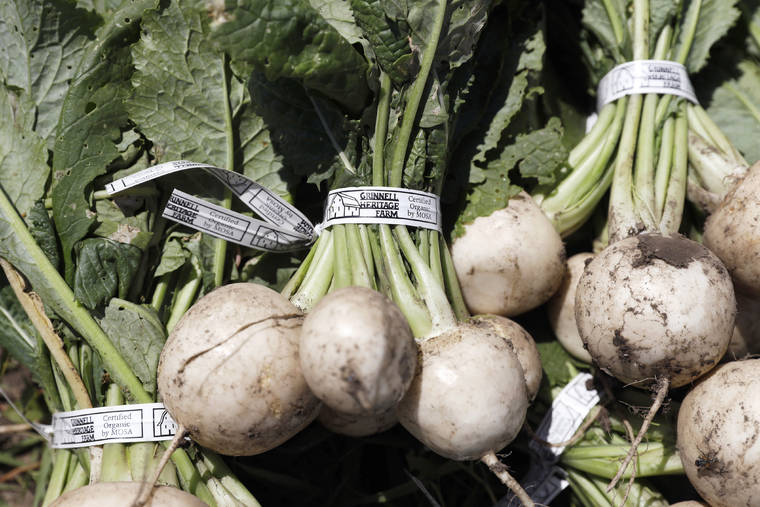DES MOINES, Iowa Torrential rain this spring prevented most Midwest farmers from planting their crops but while the federal government provides help to growers of corn and soybeans, those who grow specialty crops are largely on their own.
DES MOINES, Iowa — Torrential rain this spring prevented most Midwest farmers from planting their crops but while the federal government provides help to growers of corn and soybeans, those who grow specialty crops are largely on their own.
Although the lack of federal safety net programs for farmers who grow everything from arugula to zucchini isn’t new, one of the wettest springs in U.S. history has focused attention on the special status of commodity crops, primarily corn, soybeans, cotton, rice and wheat.
Iowa organic farmer Andrew Dunham shrugs at the situation, noting “there are no federal bailouts for vegetable farmers.”
Iowa State University economist Chad Hart says crops like corn and soybeans are treated differently because they’re so important to the national economy, and shortages would be painful, particularly to the livestock industry.

Subscribe today for unlimited access.
Already a subscriber?
Login
Not ready to subscribe?
Register for limited access.
If you have a print subscription but require digital access,
activate your account.




